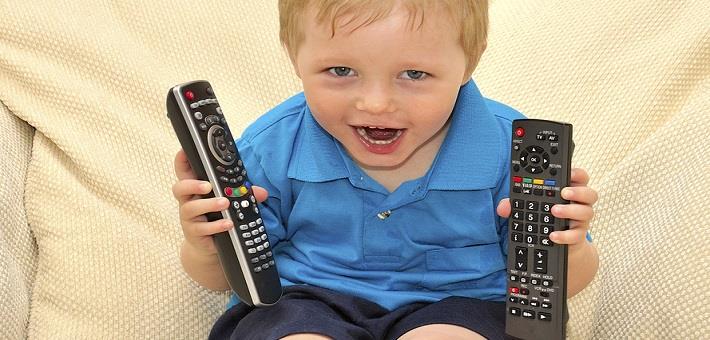
Preschoolers Who Watch a Lot of TV Have Less Control over Their Behavior
A study in Developmental Psychology investigates whether preschoolers’ TV viewing relates to their ability to control their own behaviors. It turns out that watching TV is linked to lower behavioral control, such as counting backwards. However it also depends on the type of television watched. Preschoolers who often watch educational cartoons (primarily on commercial channels) are worse at controlling their own behavior than those who prefer to watch programs on educational channels.
Take aways
- Children have less control over their own behavior when they:
- spend a lot of time watching TV,
- start watching TV at a young age,
- watch educational cartoons.
- However, watching educational channels is positively related to children’s ability to regulate their behavior.
- Parents and caretakers should know that watching TV may relate negatively to children’s ability to regulate their behavior.
Study information
The question?
Is television viewing related to preschoolers’ ability to regulate their own behavior?
Who?
107 preschoolers and their parents (mean age: 4.5 years old; 50% girls). Most parents were female (94% mothers) and European-American (80%)
Where?
United States
How?
Parents filled out a survey about their child’s TV viewing and sleeping habits. The children were interviewed for 20 minutes individually by the researchers. In the interview children’s ability to regulate their own behavior (e.g., control their impulses, shift their attention) was measured.
Facts and findings
- Children who spent more time watching TV were less able to regulate their own behavior compared to those who spent less time watching TV.
- Children who had started watching TV at younger ages were less able to regulate their behavior than those who had started when they were older.
- The type of TV children watched also influenced their ability to control their behavior:
- Children who often watched educational channels were better able to regulate their behavior compared to those who watched these channels less often.
- Children who often watched educational cartoons (e.g., Dora the Explorer) were less able to regulate their behavior compared to those who watched these cartoons less often.
- The authors gave the following explanation for these finding: educational cartoons are often aired on commercial television channels. When commercials are too distracting, they interrupt the program and draw all the attention away from the program. This could disrupt the positive effects from the educational cartoons.